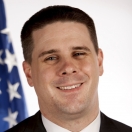
One of the hallmark tactics from opponents of health insurance reform has been to grab onto any convenient piece of information and twist it into some misguided attack on reform, no matter how unrelated it may actually be. The hope appears to be that some media outlet will give them unchecked airtime under the banner of covering the “controversy.” Today they’re going back to that playbook again, and Fox News obliges them with the headline “Critics See Health Care Rationing Behind New Mammography Recommendations.” The story refers to new recommendations from the independent U.S. Preventive Services Task Force:
"Some lawmakers on Capitol Hill are blasting new guidelines from a government task force that recommends against routine mammographies for women under 50, questioning whether they are tantamount to health care ‘rationing’ in the fight against the No. 2 cancer killer in U.S. women."
There’s only one problem: the recommendations of this task force would actually be used to provide access to effective preventive services for free or at low-cost. The USPTF would have no power to deny insurance coverage in any way. The line of attack is actually somewhat ironic, because one of the guiding principles of reform from the very beginning in March has been to invest in significantly increased effective preventive care, something these “critics” never seemed to care much about over the past 8 months.
Just so there’s no ambiguity, here are the answers to about every question you (or “critics”) might have on the U.S. Preventive Services Task Force:
Will Medicare now stop paying for breast cancer mammography for women because of this recommendation?
Women who are currently getting mammograms under Medicare will continue to be able to get them. There are no plans to change that. The law states that in order to change Medicare coverage of mammograms a formal rule making process must be undertaken and that is not happening.
Isn’t this the first step toward denying coverage for mammograms?
No. The Task force is an independent panel of experts in prevention and primary care that evaluates available evidence and makes recommendations about effective clinical preventive services based on scientific information. Under the health insurance reform legislation, the USPTF would have no power to deny insurance coverage in any way. Their recommendations would be used in health reform to identify effective clinical preventive services.
How will this recommendation affect private health insurance coverage?
The Task Force does not address insurance coverage and payment issues; it focuses on the science of the clinical services it evaluates. Each insurance company is different and makes its own coverage decisions. The Task Force recognizes that clinical and policy decisions involve more consideration that this body of evidence alone. Clinicians and policymakers should understand the evidence but individualize decision making to the specific patient or situation.
Tommy Thompson said the Task Force recommendations were the official position of the U.S. Government. Is that your position?
We have tremendous respect for the Task Force and the work they have done. They are an independent scientific body that makes recommendations based on scientific evidence; however they do not set official policy for the federal government. Under health reform, their recommendations would be used to identify preventive services that must be provided for little or no cost.
Won’t the USPSTF be used to ration care under health reform?
Absolutely not. The USPSTF, an independent task force made up of some of the nation’s top doctors and scientists provides science-based recommendations regarding the most effective preventive, treatment and screening services. The Task Force’s recommendations would be used to help determine the types of services that must be provided for at little or no cost and the Task Force would have no power to deny insurance coverage in any way..
What do these recommendations mean for the current health reform bills?
While the bills are still being drafted and debated in Congress, health insurance reform legislation generally calls for the Task Force’s recommendations to help determine the types of preventive services that must be provided for little or no cost. The recommendations alone cannot be used to deny treatment.


